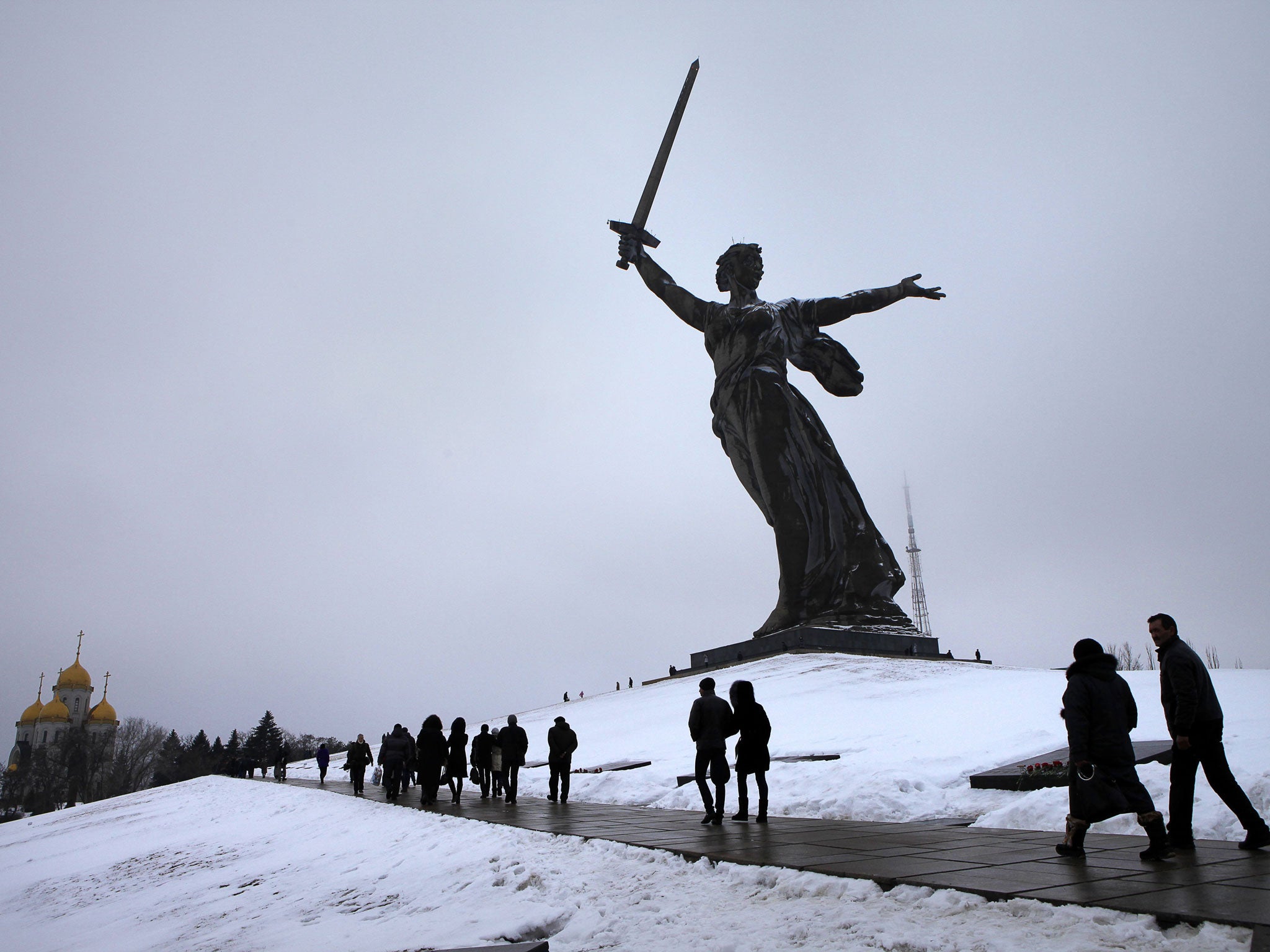Russia marks Stalingrad, 70 years on

The 87-metre high sword-wielding statue of Mother Russia dominates Volgograd's skyline, as Russians yesterday observed the 70th anniversary of the Red Army victory in the Battle of Stalingrad.
The siege, which marked a decisive turn in the war against the Nazis, was one of the bloodiest fights in modern history. Volgograd – known then as Stalingrad – suffered intense fighting for six months from September 1942 as Hitler's Fifth Army encircled the north bank of the Volga and tried to crush Soviet resistance, and so secure the oil fields to the south.
Taking part in the city's commemoration, President Vladimir Putin said: "Stalingrad will forever be a symbol of [the] unity and invincibility of our people, a symbol of genuine patriotism, of the greatest victory of the Soviet liberator soldier. And as long as we are devoted to Russia, our language, culture, roots and national memory, Russia will be invincible."
Georgy Poltavchenko, governor of St Petersburg, said "victory was not achieved thanks to the 'military genius' of Stalin... but thanks to the heroic resistance of our people".
At least 1.2 million are estimated to have died before the German surrender on 2 February 1943. Most of the Germans taken prisoner were never to return to home.
Join our commenting forum
Join thought-provoking conversations, follow other Independent readers and see their replies
Comments
Bookmark popover
Removed from bookmarks